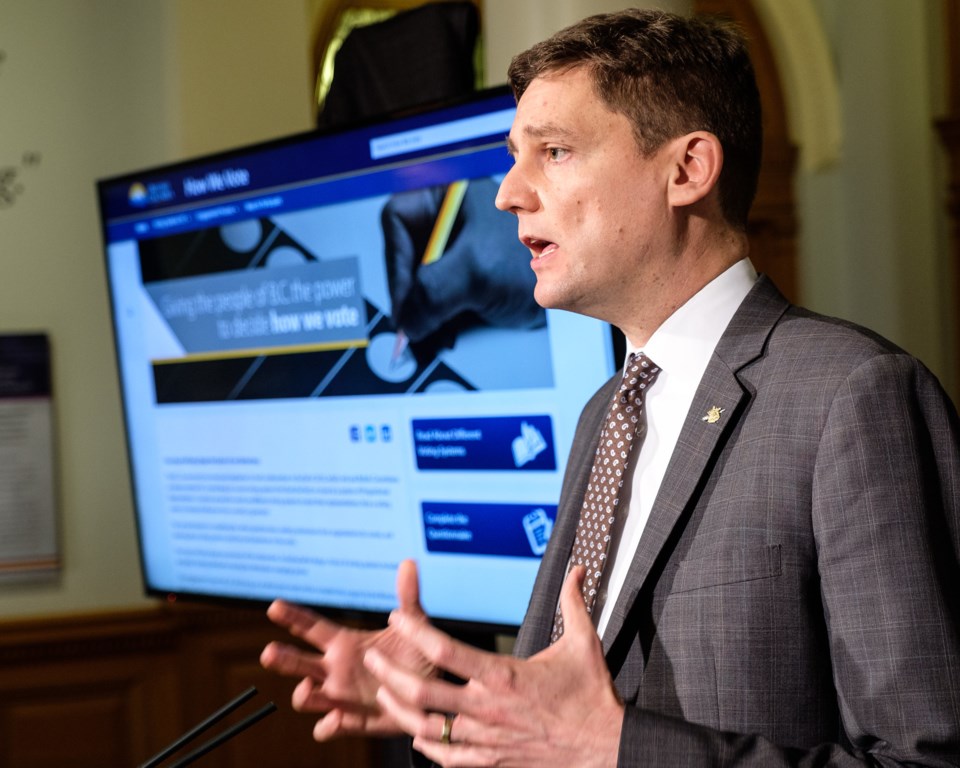Jack Crompton talks to a lot of mayors around B.C., and to a person, they usually tell him the same thing.
“Every single one of them tells me housing is their community’s No. 1 issue,” he said.
That’s part of the reason why Whistler’s mayor welcomed David Eby’s wide-ranging affordable housing plan rolled out last week, as the former housing minister throws his hat in the ring for leadership of the B.C. NDP.
“I’m very much supportive of the ambitions in the plan. I think it’s important to say that the details need to be worked out, but it’s bold,” said Crompton, who was asked to share his thoughts on the plan with Eby’s campaign staff prior to its release. “These proposals demonstrate a seriousness and an urgency I think British Columbians and Whistlerites want government to bring to housing. It’s a message that the same old approach isn’t working.”
There are a number of strategies in the proposal that could have a major impact on Whistler’s strained housing market, but for the mayor’s money, it’s Eby’s promised $500 million in capital funding to jump-start rental housing acquisition so that non-profits can purchase affordable rental buildings listed for sale, which would protect tenants already living there from displacement, that he is “most enthusiastic about.”
Crompton was also in favour of the proposed creation of BC Builds, a housing development initiative aimed at expanding the province’s role in creating middle-class homes by partnering with First Nations, local governments, non-profits and private partners to offer rapid approvals, increased density, and construction financing. According to Eby’s plan, BC Builds would use public land to eliminate the cost of land acquisition, and lock in low interest rates for long-term affordable housing projects.
“In a high-interest world, low-cost financing is attractive,” Crompton added.
Eby’s plan would also legalize secondary suites in communities across the province, which some critics have warned could force greater density in municipalities that don’t necessarily want it. For Whistler, however, Crompton said fully allowing secondary suites is one way to address the need for more worker accommodation.
Another measure Eby put forward to increase density is to allow neighbourhoods focused on single-family homes to add up to three units to a lot, which housing analysts have said could put pressure on wealthy areas to not exclude renters through disallowing things like basement suites and laneway houses. It’s similar in philosophy to Whistler’s infill housing policy—which, for all the discussion it seems to generate, hasn’t seen much uptake from homeowners.
“One of the projects in our workplan is to review and potentially expand the infill housing program. These provincial changes will have a lot to say to that work,” Crompton noted.
Another bold measure from Eby’s proposal is a so-called “flipping tax” that would apply to the residential properties that are resold within two years of purchase.
“It’s hard to know until we see the details, but I certainly don’t think flipping houses serves Whistler’s worker housing needs,” Crompton said.
Being a campaign platform, Whistler’s mayor was hopeful Eby keeps the promises within his affordable housing plan if he is indeed elected as the NDP’s new leader.
“It’s difficult to say I endorse this policy because, at this point, it’s a campaign proposal rather than a policy that is going to face the house. For it to gain endorsement by me or by our organization would require it to become legislation,” explained Crompton. “But I hope the policy details are just as bold as the campaign promises.”
Eby stepped down as B.C.’s housing minister in July to run for leadership of the party. The NDP has said voting will begin next month, with the results announced on Dec. 3.




